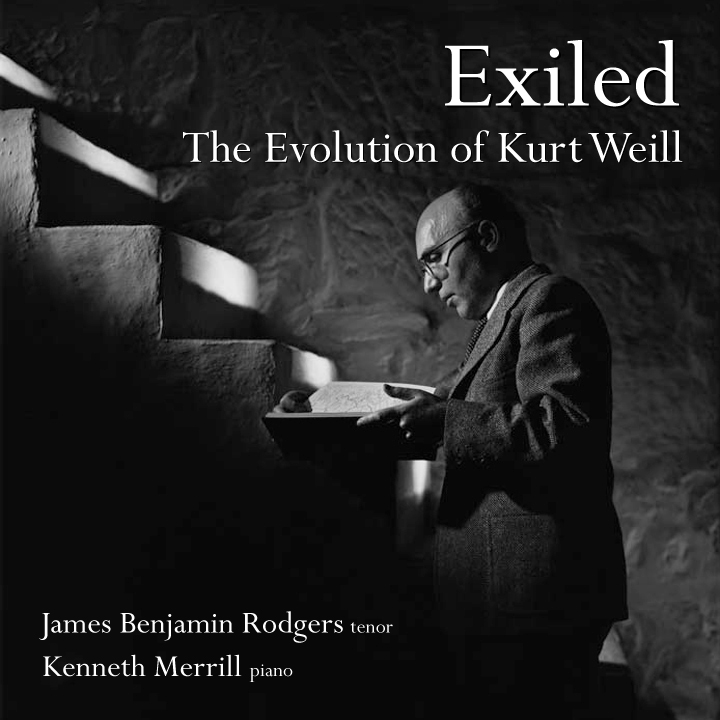book and lyrics by Paul Green.
- English
Original Text
Oh wasn't that a foolish thing
for a man and his horse to part?
And a riding fella to clip his wings
just because he lost his heart?
But the purtiest girl I ever did see
she promised to be my wife.
But she swore before she'd marry me
I must quite the cowboy's life.
Refrain:
Oh the Rio Grande, where the wind blows free
and the sun shines so clear and bright.
And the trail is long over the wind prarie,
and the cowboy travels light.
When its saddle and boots and sun and rain
and away and watch us ride
up into the saddle and over the plain
myself and my horse are one and the same
and one shadow runs beside
Oh life was dull but is happened so
a rodeo came one day.
I took my girl to see the show
there stood my little bay.
I jumped in the saddle and grabbed the horn
and I yelled to all around
"I'm the best damned cow puncher ever was born
and for Texas I am bound!"
Refrain
Lyrics by Paul Green
A New Door Opens
Weill found himself at a crossroads. A return to Germany was now impossible, and prospects in the rest of Europe grew bleaker by the day. Though he had obtained work in and built some strong contacts in England, he never seems to have seriously considered moving there permanently. A project emerged which opened the door to America.
Upon hearing of the forced emigration of the great Jewish producer Max Reinhardt, Meyer Weisgal, a Polish born Jew who had immigrated to the United States some years earlier sent a wire to Reinhardt: “If Hitler doesn’t want you I’ll take you.” The two men met and initiated what they hoped would be the greatest celebration of the Jewish story in history, envisioning a work that would become for Jews what Handel’s Messiah was for Christians. In December 1933 they sent Weill an offer to write the music.
Incidentally but hauntingly, in May of 1934, the creative team met at Reinhart’s residence near Salzburg. From this house they could look across the border into Bavaria and see the “Eagle’s Nest”, Hitler’s infamous mountain chalet.
Though he was not fully aware of it at the time, this trip to America for what came to be called The Eternal Road would prompt a permanent geographical shift in Weill's life. Like many Germans of his generation he had an infatuation with the idea of America. He would now discover the reality.
On September 10th, 1935, Weill and Lenya arrived in New York and immediately set about building the network they hoped would allow them to break into the New York scene. At a party in the winter of 1935, Weill once again illustrated an uncanny ability to find his feet in a new place when he met one of the founders of The Group Theatre, Harold Clurman. Partial to Weill and his music, Clurman felt there might be the prospect for the now highly regarded theatre troupe to produce a new musical. The result, after a stormy but stimulating pre-production period for Weill, was Johnny Johnson. The play followed the story of a small town American boy’s contribution to World War One. Weill had his first project in the United States, a Broadway musical produced by one of the most influential theatrical organizations of the era.
In what amounts to a cowboy song, a homesick soldier, settled into the trenches, reminisces about the wonders of the Rio Grande in his home state of Texas.
